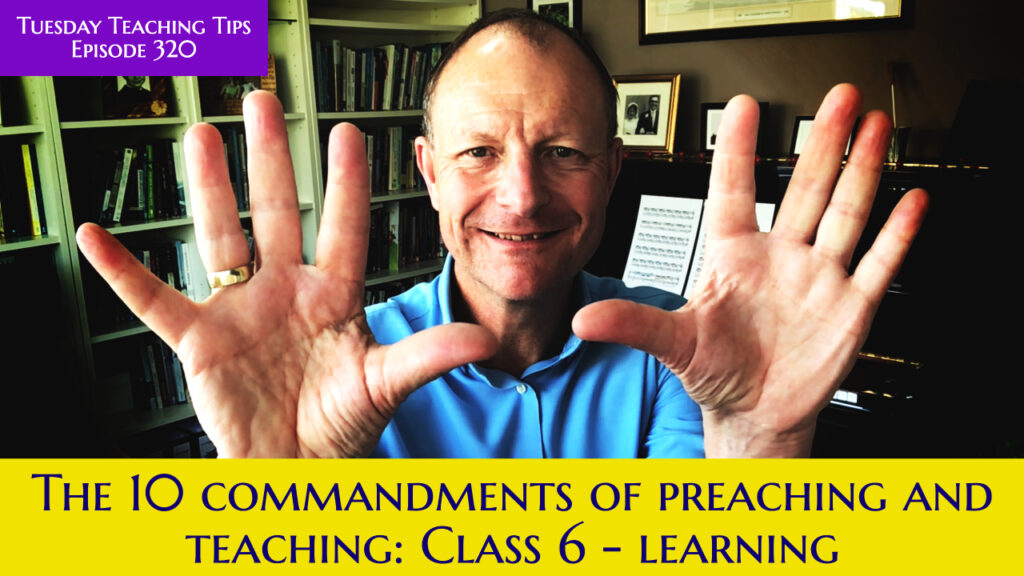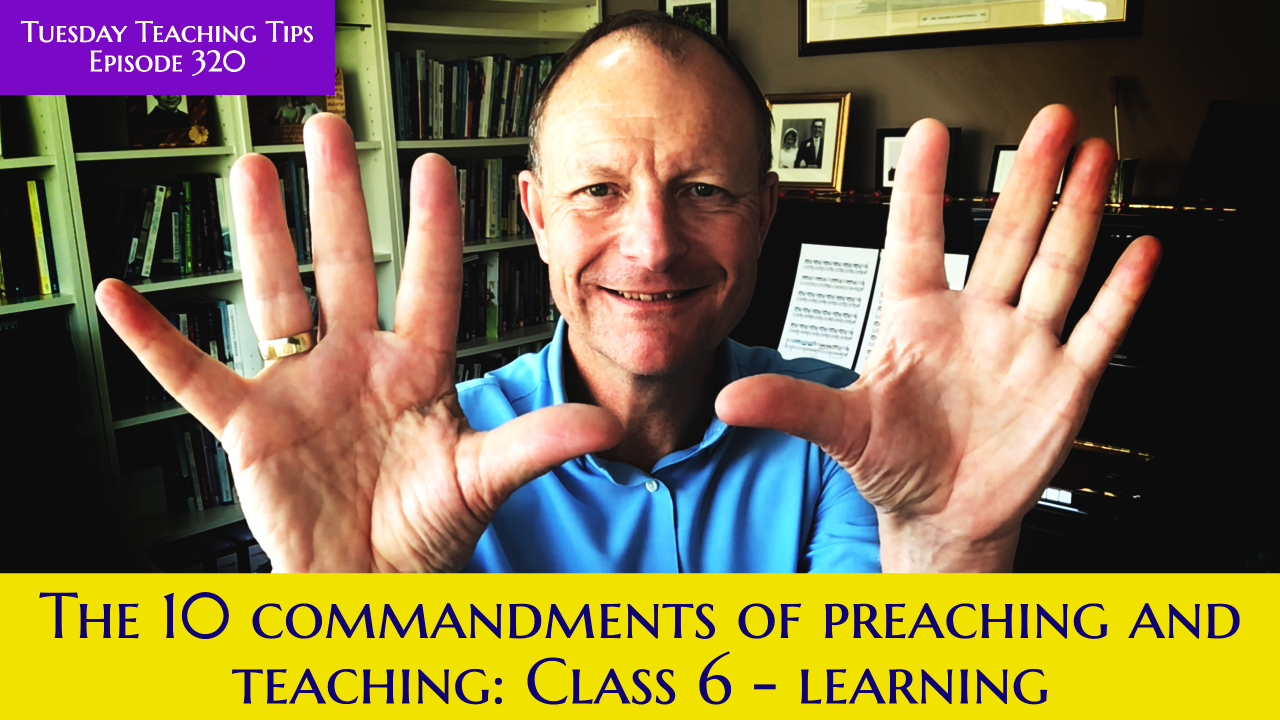5th Commandment: Great learning is more important than great teaching.

5th Commandment: Great learning is more important than great teaching.
Introduction
Our preaching and teaching will never be perfect. But can we be effective? That’s a noble aim.
“At Iconium Paul and Barnabas went as usual into the Jewish synagogue. There they spoke so effectively that a great number of Jews and Greeks believed.” (Acts 14:1 NIV11)
Point of clarification
Jesus was a master-teacher. His listeners learned, not simply heard what he was teaching. How do we know? We know this because people wrote down what he taught – even though it was delivered in an oral-learning culture. We also know this because lives were transformed. People gained the courage to live his teachings even though it got them beaten up imprisoned and killed. That is some powerful and effective teaching. His audience did not just hear what he said, they were taught, learned and changed.
4 Tips to give you the best possible chance to help your listeners learn
- Use a variety of teaching styles. Some people seem to react better to stories, others to images, some to video, others to learning through discussion, question-and-answer, and more tactile forms of learning. The science on learning styles has been called into question. However, keeping your teaching style varied will help some people absorb what you are saying better than if you use only one style.
- Give handouts. Some people find it easier to learn when they have something in their hands. It could be the outline of your talk. You don’t have to put all your material on there, perhaps only bullet points. It gives some people a sense of peace. They are able to relax and listen better when they know where we are going.
- Ask questions. Whether this is in the entire group you are teaching, or questions which can be used in small group discussion, getting people to verbalise what they are thinking helps them to clarify their understanding.
- Do some follow-up. Ask people to send you a paragraph of what they have learned via text message, WhatsApp or email in the coming days. After some reflection people are often more able to articulate what they learned. You may be interested to know what they learned, but the more important point is that they write. There is something about writing which solidifies the learning.
I would like to know what you think of these ‘commandments’ and tips. What is missing? Which ones interest you the most?
Conclusion
Next week: 6th Commandment: Every Learner is Different so… Differentiate.
Consider joining AIM UK&Ireland to develop your understanding of Scripture: https://aimukandireland.com/. Our next module is Homiletics (the preparation and delivery of lessons).
Please add your comments on this week’s topic. We learn best when we learn in community.
Do you have a question about teaching the Bible? Is it theological, technical, or practical? Send me your questions or suggestions. Here’s the email: malcolm@malcolmcox.org.
If you’d like a copy of my free eBook on spiritual disciplines, “How God grows His people”, sign up at my website: http://www.malcolmcox.org.
Please pass the link on, subscribe, and leave a review.
“Worship the LORD with gladness; come before him with joyful songs.” (Psalms 100:2 NIV11)
God bless, Malcolm

![]()


